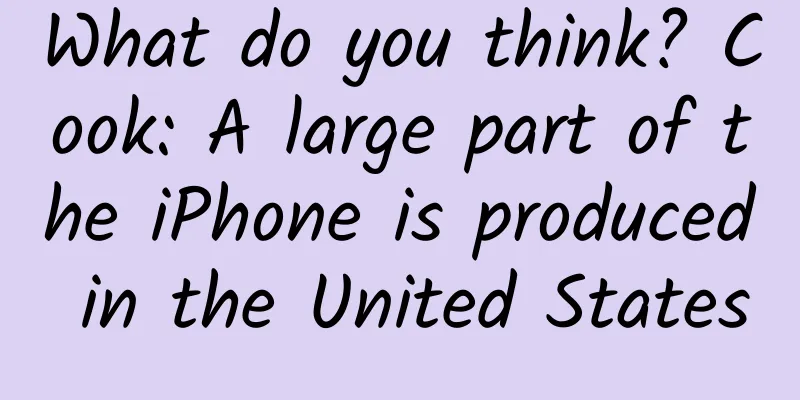WeChat still has a chance of commercialization, but it is too early to predict its failure

|
Since Baidu launched Direct Account at the 2014 Baidu World Conference, the debate about Direct Account and WeChat Official Account has never stopped. Supporters believe that the market that Direct Account enters is O2O, which has almost no impact on friends who do e-commerce; opponents believe that Direct Account is a sign of the complete end of the era of WeChat's autocracy. Whether it is support or opposition, from the user's perspective, whoever solves the pain point will win, and users will choose whoever. As soon as Direct Account was released, public opinion was almost one-sided - supporting Direct Account and criticizing Official Account. The author guessed that the reason was probably that many people believed that the official account, which had been waiting for 4 years, fattened up the first people to eat crabs, while ignoring most of the people who did not eat crabs. The various frustrations of merchants, the various disappointments of enterprises, and the various resentments can finally be expressed with the help of this Direct Account launch conference. It has to be said that users' concerns are justified. WeChat has always conveyed to the outside world that "WeChat is not a marketing tool." In the field of mobile e-commerce, the battle between BAT has never stopped, and it seems that one party will take the stage after the other, from the "TA (Tencent, Alibaba) War" at the beginning of the year (recently, Alibaba is busy with its listing, and the war has stopped a little) to the "BT (Baidu, Tencent) War" in the middle of the year. It was dazzling to see all parties. The appearance of Baidu this time has led the war to the peak, and Zhang Xiaolong is also facing the most difficult challenge since the birth of WeChat. Although the launch of the direct number once excited the industry, it is too early to sing the pessimism of WeChat, which has 800 million users. Mobile e-commerce fans are king rather than traffic The marketing community has been arguing over whether fans or traffic are king in mobile e-commerce. Although WeChat has a large amount of traffic, it does not distribute this traffic to merchants. At the entrance of traffic, WeChat does not directly direct the traffic to merchants, but keeps a hand - earning money through the advertising platform model of Guangdiantong. It is understandable that WeChat, which has become commercialized, does this. Perhaps WeChat did not take the route of traffic being king from the beginning. This can be seen from its launch of "No matter how small an individual is, he or she has his or her own brand". WeChat public accounts still take the route of fans being king, and the slogan of direct accounts "Direct access to what you need anytime, anywhere" seems more direct and crude compared to WeChat public accounts. As we all know, Tencent succeeded in social networking, while Baidu succeeded in search. Most of Tencent's paying users are individuals, while Baidu targets more enterprises. The purpose of Baidu's direct account is very clear, which is to make businesses pay. In addition to service accounts, WeChat public platform also has subscription accounts (some time ago, the media also broke the news that WeChat will soon launch enterprise accounts), which targets a wider user group. In terms of usage scenarios, direct accounts are indeed more convenient to use than WeChat public accounts, but in terms of user stickiness, direct accounts are not as good as public accounts. Generally speaking, users who follow public accounts must think that the account has a certain value to them. For users who are accustomed to using Baidu to search for information for free, it seems that they are not so accustomed to directly entering @ the name of the merchant in the search box to view related information. WeChat’s platform stickiness is much greater than direct numbers According to WeChat's official concept, the first step is to create a public account and establish a platform; the second step is to help users and merchants solve service capabilities; the third step is to provide all merchants with the traffic entrance they expect, so that merchants can make money. WeChat has built a complete ecosystem of "merchants' stores, basic transaction systems, third-party service providers, WeChat payments, WeChat advertising, big data" around the public platform. The direct account has also completed a system including information query, review viewing, map query, online ordering, etc., and has basically formed a complete business ecological chain. From the perspective of the entire ecological chain, WeChat is a "connecting everything" form that "makes business easy", while Zhidahao will still reflect Baidu's "competitive ranking" business model if it develops in the future. WeChat has had a user base for four years and users' payment habits for more than a year. On the other hand, although Baidu has Baidu Wallet, users' payment habits have not been formed, and its access time is far behind WeChat. Some analysts believe that WeChat copied Weibo's back road, and Zhidahao copied WeChat's back road. No matter who copied whose road, one will win in the end. The mobile Internet era is an era of revolution and revolution. Either you survive from a desperate situation or you commit suicide and reborn. Third-party developers will still choose WeChat public platform At least half of WeChat's success is due to third-party developers. If we really have to choose a team, I think most third parties will still choose WeChat public platform. The reasons are: 1. WeChat's 800 million user base makes many businesses salivate; 2. WeChat's precision marketing and services have further enhanced users' dependence; 3. The "@" model of direct access numbers is a bit overwhelmed for some unknown small businesses, while public accounts are fairer to corporate users. I did some research and found that there are not many high-quality third-party developers connected to Baidu except for the relatively well-known Diandianke, Weixinhai, and Weijuju. On the WeChat public platform, Weimeng, Weikelai, Koudaitong, etc., which have hundreds of thousands of users, have not yet connected to the direct account. It can be seen that many third parties are still cautious about Baidu's direct account. According to statistics, there are nearly 2,000 third-party developers on WeChat, and 6 million public accounts. If the direct account wants to surpass WeChat in the short term, it may not be so easy. It's time for Zhang Xiaolong to make a decision In the post-WeChat era, WeChat's commercialization will face many challenges. Since Zhang Xiaolong was officially appointed as the president of the WeChat business group in May this year, WeChat's development in payment, e-commerce, O2O and other fields has continued to accelerate. The establishment of the WeChat business unit means that WeChat will change from a mobile social era to a mobile e-commerce era. This product manager, who is known as a god, faces tremendous pressure. Faced with the aggressiveness of direct accounts, the relentless pursuit of Alipay, and the commercial realization of investors within the company, WeChat is treading on thin ice every step forward. Whether to continue to open up (interfaces and traffic) or to stand still, whether to make minor repairs or to cut off the root of the problem, it is time for WeChat to express its attitude. As a winner of Toutiao's Qingyun Plan and Baijiahao's Bai+ Plan, the 2019 Baidu Digital Author of the Year, the Baijiahao's Most Popular Author in the Technology Field, the 2019 Sogou Technology and Culture Author, and the 2021 Baijiahao Quarterly Influential Creator, he has won many awards, including the 2013 Sohu Best Industry Media Person, the 2015 China New Media Entrepreneurship Competition Beijing Third Place, the 2015 Guangmang Experience Award, the 2015 China New Media Entrepreneurship Competition Finals Third Place, and the 2018 Baidu Dynamic Annual Powerful Celebrity. |
>>: Apple Pay is unlikely to change China's mobile payment landscape
Recommend
Case: Analyzing effective promotion strategies in the early stages of a product!
"The successful execution of a plan that mak...
Baojun Yunhai with smart driving VS the new Qiyuan Q05, which one do you choose?
Changan Qiyuan Q05's new "Zhenxiang"...
iOS is getting worse and worse. What’s wrong with it?
[[125300]] Recently, foreign media Forbes publish...
What is the Alipay customer service phone number? How to transfer to a human operator via Alipay customer service phone number?
Currently, Alipay is one of the most mainstream m...
Mycoplasma pneumoniae infection may peak in November: Parents must know these key questions
The health of children concerns every parent. Thi...
Community operation construction and activity methods!
Let me ask you directly, have you ever encountere...
Check yourself! Be careful if your fingers have this condition, it may be your heart calling for help...
Reviewer of this article: Yang Shi, Associate Res...
How many kilometers are in 1 nautical mile? Why do we use nautical miles instead of kilometers to describe distances at sea?
It is common knowledge that one kilometer is equa...
I heard you started growing vegetables? Here are some vegetables I recommend...
What are you doing at home during this lockdown? ...
Learn these 6 ways to play, and your Douyin account can also bring goods
As Douyin’s ability to sell goods continues to im...
What books should I read in operations? Here is a list of 15 books on operations for you!
My friends in operations always ask me to recomme...
If you don’t understand a little bit of "Dream of the Red Chamber", you won’t be able to understand the college entrance examination essay!
Mixed Knowledge Specially designed to cure confus...
Is it difficult to implement graceful backend keepalive? Not possible!
[[287287]] Keep alive status We know that the And...
After Valentine's Day, it's Lantern Festival? Wrong! It's still Valentine's Day!
Mixed Health I don't understand the health tr...
How to use the "expert" economy, which is more lethal than "Internet celebrities", to market products
Jiuzhilan Interview: A one-stop strategy for buil...









